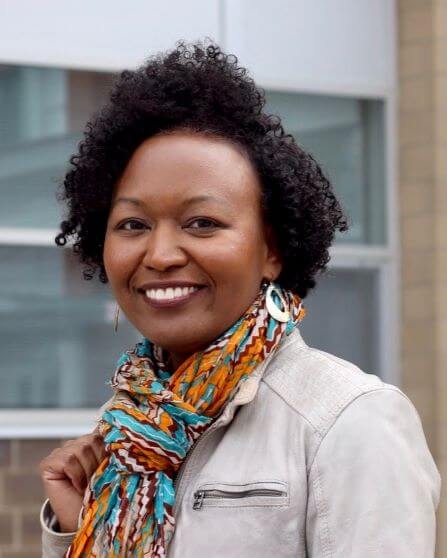- Home
- About Us
- The Team / Contact Us
- Books and Resources
- Privacy Policy
- Nonprofit Employer of Choice Award


If we keep thinking of anti-racism and inclusion work as a nice to have or just soft skills, then we are likely to see slow moving progress in these areas. In my experience, anti-racism practices and equity-centred leadership are essential skills that need to be learned, practiced and integrated into our day-to-day interactions. The issue for many is that the word “soft” dilutes the importance of these essential skills for teamwork, innovation and building an organizational culture of belonging.
Towards the end of 2022 I would often get asked, “Are you still seeing an upswing in interest and work in the area of diversity and inclusion?” My response was (and is) yes and no. I am seeing that the leaders experiencing measurable progress in their inclusion and diversity goals are also the ones that have taken a holistic, consistent and intentional approach. Through their actions, investments and practices, they are building their capacity to work through difficult conversations, test new approaches and remove systemic barriers.
Many people are curious about the longevity of the Black Lives Movement, about the organizational commitments and pledges signed in 2020, and the conversations, learning and unlearning that followed. Is this just a fad? As we return to work three years after COVID-19, are we also going to return to workplaces and cultures that are maintaining the status quo way?
In July 2022, The Globe and Mail published survey findings related to the BlackNorth Initiative - a 2020 pledge and 5-year commitment aimed at tackling systemic racism through: increased diversity on board and leadership tables, deepening an understanding of bias, adopting anti-racism and anti-oppression practices, and removing institutional systemic barriers in order to create the conditions for success. CEOs representing close to 500 Canadian organizations, signed up to support this initiative. The title of the article sums up the findings, Two Years After Signing BlackNorth Initiative, Majority of Companies Have Failed to Make Substantial Progress on Diversity.
The detailed survey insights demonstrate some change over the two years but ultimately not where we would like to be.
Only 30% of companies that signed the pledge responded to The Globe’s survey in the spring of 2022. Of those 145 respondents, there was minimal improvements on the key indicators -- the number of Black employees, Black executives and Black directors in the past two years:
Like those interviewed in the article, I was not surprised by the findings or low survey response rate, it is another example of the pace of this work and perhaps a wake-up call for all of those committed to doing better to get back to it.
My work supports leaders and teams to build a common understanding and language related to anti-racism, inclusion and equity and I emphasize the importance of self-awareness, reflection and self-examination as a starting point. Building staff capacity for ongoing conversations about racism, learning about our unexamined biases, and applying practices related to active and empathetic listening, are vital skills required for organizational change. During a recent session, a participant asked, “Aren’t these just soft skills? Doesn’t everyone have these skills? And for those that don’t have these skills how much is does the responsibility to practice these skills reside with the individual and how much support is expected of the employer?”
I really appreciated these questions because often time when I offer my promising practices, I can see eyes glaze over and my feeling is that many people don’t value these so called “soft skills.” And for me, therein lies part of the problem. Perhaps if we changed our language and thinking around this work, we would also improve our commitment and engagement to the work.
How we value and prioritize knowledge, experience, and expertise related to inclusion and anti-racism is directly related to how we invest in, engage and integrate these practices into our organizational cultures.
If you are committed to anti-racism, inclusion and creating a workplace where everyone feels like they belong, then you are also prioritizing the skills that are needed to create inclusive organizational spaces, such as empathy, relationship building, adaptability, decentering whiteness, active listening, asking critical questions, and a learning mindset.
For example,
Let’s talk about anti-racism and inclusion work as essential skills required for building and maintaining inclusive and equitable workplaces and perhaps, we can accelerate our work and results over the next year.
Chanel Grenaway has over 20 years of experience in the nonprofit sector focused on integrating equity and intersectionality practice into workplace cultures. She has worked with Foundations, multi-service nonprofit agencies and academic institutions. She currently supports leaders to improve their equity and inclusion outcomes through equity assessments, training and knowledge building, community engagement, and action planning. www.chanelgrenaway.com